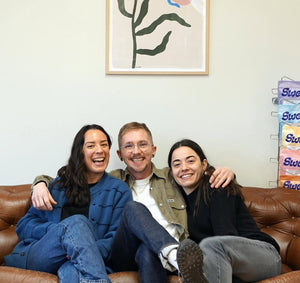Reinaldo Chilito - Colombia
GOOSEBERRY, POMELO, HIBISCUS
In stock
Estimated Shipping Widget will be displayed here!
About the coffee
This coffee has notes of GOOSEBERRY, POMELO, HIBISCUS.
Origin
Origin: El Purutal, San Agustín, Huila, Colombia
Producer: Reinaldo Chilito
Variety: Pink Bourbon
Process: Washed
Taste Profile: Gooseberry, pomelo, hibiscus, tropical sweetness
Roast: Filter roast
Altitude: 1,850–1,920 m.a.s.l.
Packaging: 250 g / 1000 g – whole beans
The story behind Reinaldo Chilito - Colombia
Coffee's process
Choose specialty coffee - for quality, transparency and genuine flavor
Important for non-EU customers!
Important tax information for customers outside the EU
- Countries outside the EU, United Kingdom, Switzerland, and Norway: Price shown excluding VAT.
- We do not collect any VAT for customers outside the EU. Therefore, import tax will need to be paid by the customer to their customs authority upon import.
- EU countries: Price shown including local VAT
Read more here
Warranty
- 1 year warranty
- The warranty does not cover cosmetic wear or tear.
- For questions, contact info@barista-espresso.se
- Read more about our warranty terms
Shipping & returns
We deliver worldwide
- Orders within the EU, Switzerland, Norway, and the United Kingdom can be checked out automatically; orders from other countries are processed manually.
- Order processing the same day.
- Most products are shipped from Sweden
Courier delivery
- DHL
- UPS
- PostNord
- DBSchenker
Delivery time
- 1 - 5 business days depending on delivery address
Shipping costs
- Shipping costs are calculated automatically at checkout.
Return policy
- 14-day right of withdrawal
- The item must be returned unused
- Contact us at info@barista-espresso.se for return inquiries.









